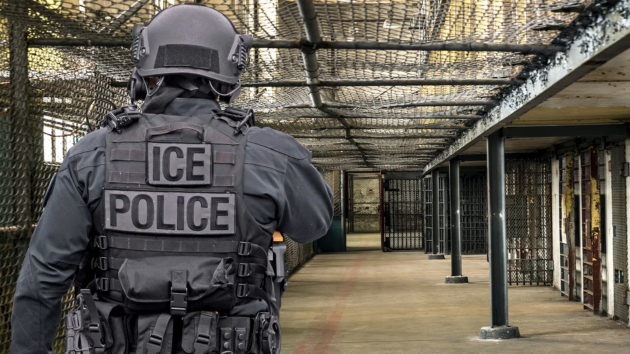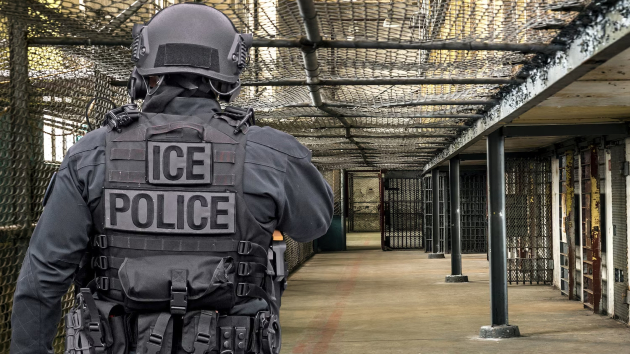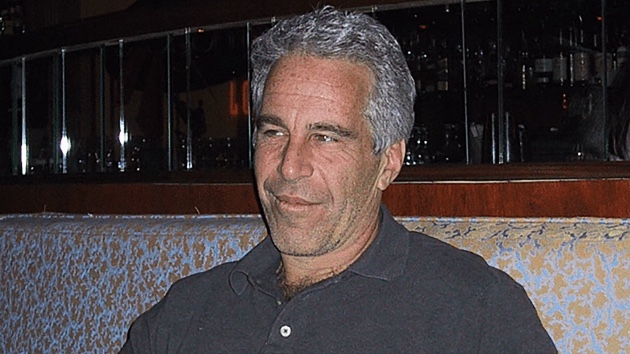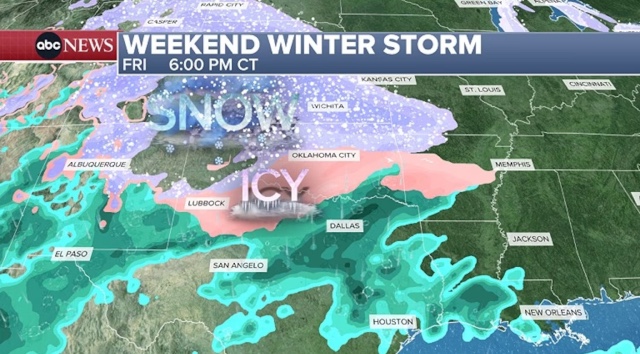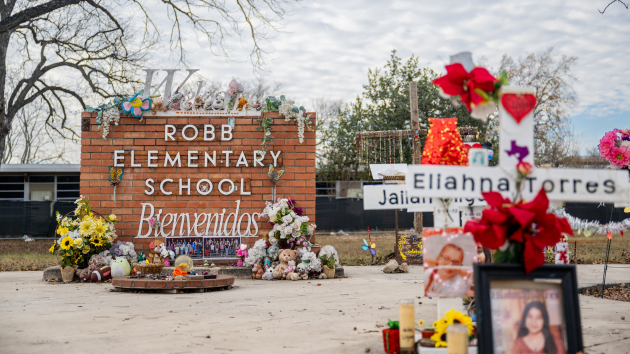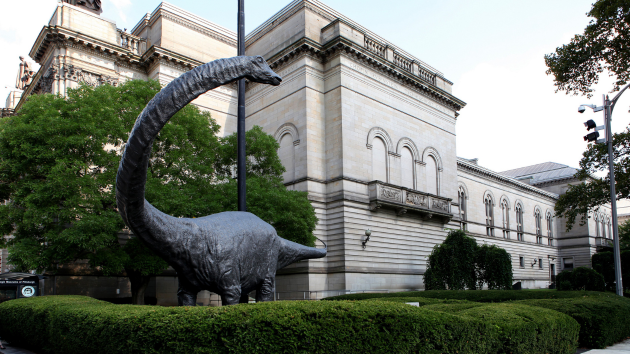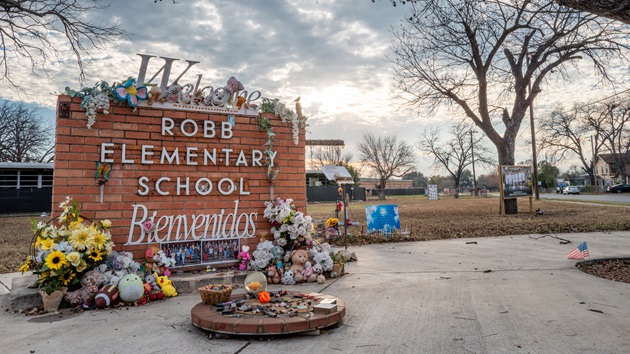
(NEW YORK) — In recent weeks stories have emerged about college students whisked off campuses by immigration agents – targeted for deportation based on their writings or activism – and detained in federal custody despite never being charged with a crime.
While the number of impacted students appears to be small — with Secretary of State Marco Rubio indicating around 300 students were targeted last week — the actions, part of the Trump administration’s immigration crackdown, have sparked fear and questions about the rights these students have, especially free speech.
Experts, immigration attorneys and advocates told ABC News the Trump administration has been using an unprecedented application of immigration law to expedite their removals. The administration, for its part, maintains that it is following the law and has accused some of the students detained of showing support for Hamas and participating in movements that are “creating a ruckus,” Rubio said.
While legal experts have said that noncitizens are generally guaranteed the same free speech as American citizens, the Trump administration has argued that their presence in the United States is a privilege. As their cases move through federal courts, the students challenging their removals have the potential to reshape the law related to free speech and immigration, according to legal experts.
In the meantime, the students caught in the Trump administration’s crosshairs may be detained for months despite never being charged with any crimes because of the massive backlog of cases in U.S. immigration courts.
Here’s what the experts say there is to know about their rights:
What rights do student visa or green card holders have if they are threatened with deportation?
Once the Trump administration attempts to revoke a visa or green card – which grants permanent residency rather than a short-term stay in the US for a specific purpose — students still have the right to an immigration hearing to determine if their deportations are justified, according to Cheryl David, a New York immigration attorney.
“The level of due process that they may be entitled to will depend on what immigration status they have in the United States, and whether or not the Trump administration has a basis for revoking their lawful status in the United States that has any reasonable basis in law or not,” said Elora Mukherjee, a professor at Columbia Law School and director of its Immigrants’ Rights Clinic.
During those removal proceedings, noncitizens have the right to access a lawyer but are not guaranteed one like they would in a criminal court. If they are detained while they await their removal hearing, the noncitizens also have the right to file a habeas petition to challenge their detention.
Even though all the recent students who have had their visas revoked do not have criminal records, the Trump administration has insisted that they be detained while their cases play out, meaning they could spend more than six months behind bars without being charged with any crimes, according to retired Cornell Law School professor Stephen Yale-Loehr.
“The Trump administration has been a lot more aggressive than past administrations on putting people who have not been convicted of crimes into immigration detention,” said Yale-Loehr.
The Trump administration had justified the detentions by arguing that some of the students have supported terrorist activities, pose an ongoing threat to the United States, or threaten the country’s foreign policy interests.
Have past administrations revoked student visas?
The Trump administration’s policy of revoking student visas marks the most aggressive approach in more than two decades, according to immigration attorney Renata Castro.
“Because presidents have direct control over policies on the issuance of student visas by embassies and consulates, they are able to dial up or down the heat when It comes to issuing student visas from individuals of certain countries,” Castro said.
Following the 9/11 terror attacks, the George W. Bush administration implemented stricter immigration and student visas policies based on national security concerns. According to Castro, what makes the Trump administration’s revocations unique is that they are sometimes rooted on the exercise of free speech – a basis that could eventually be challenged in court.
“The government is looking at speech – the exercise of free speech – and using that to dig into perceived immigration violations so that they can revoke student visa,” she said.
What role might colleges and universities have related to deportations?
If a college or university expels a student for their campus activism, the students face a heightened risk of removal because they no longer have the student status required by their visa.
“If the school is not cooperating and they are still going to school, they’re not in violation of their student status,” said David. “Then the government would have to find another way to say that they’re removable from the United States.”
According to Greg Chen of the American Immigration Lawyers Association, the Trump administration’s recent crackdown has included more aggressive enforcement action on campuses, where some universities have cooperated with law enforcement.
“I have not seen before the kinds of aggressive tactics ICE is now taking to apprehend students in their dormitories, on campus or near campus for immigration enforcement,” said Chen.
Can a student be deported because they threaten U.S. foreign policy?
In some instances, the Trump administration has invoked a rarely-used law to justify removing noncitizens based on their impact on foreign policy. Columbia graduate student Mahmoud Khalil and Georgetown University fellow Badar Khan Suri were both detained based on the law.
The provision, 8 U.S.C. § 237 (a)(4)(C)(i), allows the removal of noncitizens if their presence in the United States could have “potentially serious adverse foreign policy consequences for the United States.”
According to an analysis of past immigration cases conducted by political scientists Graeme Blair and David Hausman, the United States has invoked that law only 14 times in history as a basis for a removal, including only two times since 2000 when it was the sole basis for removal.
“I’ve been doing this for 25 years. I’ve never seen this used,” said Cheryl David, a longtime immigration attorney.
To prove that a noncitizen threatens U.S. foreign policy, Yale-Loehr said the administration will have to submit sworn declarations or evidence to prove the person’s impact on foreign policy.
“If it is this foreign policy ground, you need a statement from the secretary of state saying the magic words, this person’s presence would have serious adverse foreign policy consequences,” he said.
Mukherjee, of Columbia University’s Immigrants’ Rights Clinic, called the use of the law “unprecedented and unconstitutional” and believes the policy will be shot down by the courts because it is at odds with the First Amendment.
“It’s important for the American public to keep in mind that the First Amendment protects the right to freedom of speech for all people in the United States, regardless of their immigration status. This is long established constitutional law ruled on by the Supreme Court over decades,” she said.
The Trump administration has argued that the invocation of the law is a justified, lawful, and protects US interests.
What basis is the Trump administration using for the removals?
The Trump administration has alleged that some students have supported terrorists as a basis for their removal. To prove that, David said, they will need to demonstrate that they did more than simply practice their free speech.
“Because a person you know necessarily does an op-ed saying we think that Israel is committing genocide, that’s not going to be enough,” David. “But if they are handing out flyers and promoting activities that the government thinks are related to terrorism, then that could be grounds to say they did engage in terrorist activity.”
Authorities are also looking closely at visa applications.
Federal authorities alleged that Columbia graduate student and legal permanent resident Mahmoud Khalil – who was first detained based on his alleged impact on foreign policy — lied on his green card application. Experts said that examining visa applications may become a broader strategy for the Trump administration to justify deportations.
“If you don’t disclose information on a green card application that the government thinks was material to whether or not they would have admitted you to the United States, then they can allege that you committed fraud on that application,” said David.
Can a removal decision be appealed?
Noncitizens generally have the right to challenge an immigration judge’s decision with the Board of Immigration Appeals or in federal court; however, David noted that they might not be able to fully exercise their appeal if they are already in U.S. custody and removed before their appellate rights are exhausted.
“Unless a federal judge saves that deportation, that person is going to be deported from the United States,” David said.
While other presidents – including Barack Obama – have embraced a policy of swift deportations, the Trump administration appears to be testing the limits of the law, experts said.
Does the location where a noncitizen is detained during their immigration proceedings matter?
According to Castro, keeping the students detained while their cases move through the courts could prompt more people to self-deport – a policy the Trump administration has actively encouraged.
“When an individual is kept in detention, it’s almost to break their spirit, because now they don’t have the ability to work. They don’t have access to free legal representation. Their life is falling apart,” she said. “Migrants who self deport are usually the ones who haven’t committed a crime and look at themselves in the mirror and think, ‘I’m being treated like a criminal, even though I’m not one.’”
The process of granting a bond in immigration court is a “marathon” according to Castro that takes at least three weeks, and judges in some jurisdictions infrequently hear habeas cases filed by noncitizens.
In some cases, the Trump administration has relocated noncitizens from the district where they were arrested to ICE holding facilities in other states. The location where they are currently held could be impactful if or when they file a habeas petition in federal court, according to Nicholas Espíritu, deputy legal director at the National Immigration Law Center.
For noncitizens held in the South Louisiana ICE Processing Center in Basile, Louisiana, they would end up filing their habeas petition in the more conservative Western District of Louisiana and Fifth Circuit Court of Appeals.
The move to another state could also complicate their legal representation and make it harder to communicate regularly with lawyers, said Espíritu.
“These individuals are students, and the idea that they are going to have the resources necessary kind of on their own to be able to secure that robust legal protection just demonstrates the way in which the actions taken by the federal government are really seeking to undermine, quite frankly, the ability for these individuals to have their case heard in court,” he said.
Copyright © 2025, ABC Audio. All rights reserved.
- 1st defendant sentenced in NBA gambling scheme gets 2 years in prison - January 21, 2026
- DHS launches ‘Operation Catch of the Day’ enforcement action in Maine - January 21, 2026
- Ford recalls around 119,000 vehicles over fire risk: NHTSA - January 21, 2026


